Share
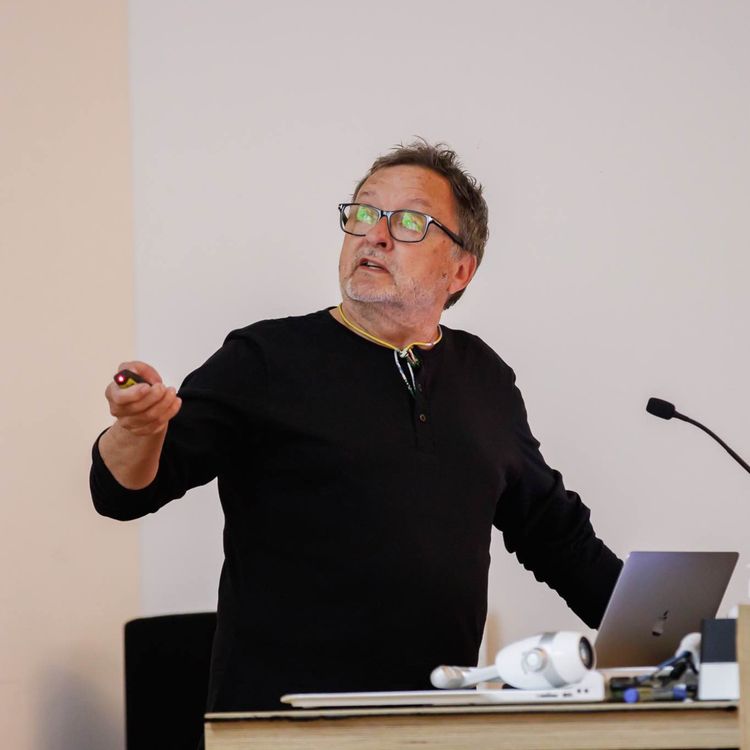
Murcutt Foundation
Stories of earth: echoes in architecture
When you’re Rick Joy, small moments of surprise reveal themselves.
A lot of these moments are captured in images that Rick speaks to in this podcast, so you’ll have to imagine them, or head to StudioRickJoy.com to see some of the projects he speaks to like his Desert Nomad House, Amangiri Resort, Princeton Transit Hall or the Woodstock Vermont Farm.
Rick shares the landscapes, experiences and artists that influence his work; of canyons that are abstracted and reflected in his architecture, inspiration from sunlight striking the tip of mountain ranges in Tucson or - looking back at his work from a distance, where his buildings visually recede into the landscapes they’re designed for.
Many of the early projects were designed and built by Rick who was on the formwork for the massive rammed earth walls he’s known for. You hear this in Rick’s eye for detail and his description on how to finish materials and his love of precise detailing.
Rick also looks back at the start of his career, designing to modest budgets and all of it built with Rick’s own hands.
And stay till the end, for Rick on drums…
More episodes
View all episodes
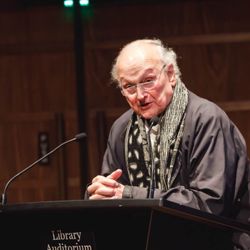
7. 2025 Murcutt Symposium - Glenn Murcutt in closing
07:42||Season 2, Ep. 7The inaugural Murcutt Symposium was held in Sydney, with house tours, talks and social events spanning three days 11-13 September. The climax of the Symposium was an unscheduled, and very personal moment when Glenn Murcutt chose to acknowledge the distances travelled by so many and the passing of dear friends in recent weeks, and the support given to him by all those who attended this first ever Murcutt Symposium.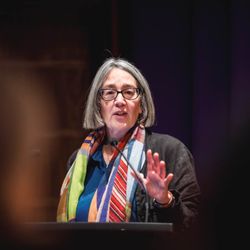
6. 2025 Murcutt Symposium - Catherine Hunter on Glenn Murcutt
54:38||Season 2, Ep. 6The inaugural Murcutt Symposium was held this week in Sydney, with house tours, talks and social events spanning three days 11-13 September.Celebrated Australian documentary film maker, Catherine Hunter, has filmed Glenn Murcutt and his work for around 30 years. Two short films by Catherine on Murcutt's life and work have been aired to acclaim worldwide: Spirit of Place and the Cobar Sound Chapel. But Catherine's footage extends beyond these films at a time when funding for arts and cultural works is dwindling. At the close of Catherine Hunter's presentation, the Foundation announced a crowd funding campaign, to be matched by funding from the Foundation, to complete the work of 30 years and produce the definitive documentary on Glenn Murcutt: his life and works.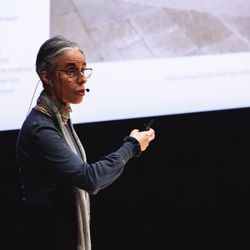
5. 2025 Murcutt Symposium - Carol Marra
01:04:22||Season 2, Ep. 5The inaugural Murcutt Symposium was held in Sydney, with house tours, talks and social events spanning three days 11-13 September. Sydney-based architect Carol Marra's work on the publication 'Design for Climate/ design for change' synthesises precedents drawn from vernacular architecture that has developed in response to specific place-based climatic, cultural and other conditions. Those precedents are explored and explained, and applied in case studies under conditions that are changing along with our climate. These include design for bushfire, heat, flood and wind - elements that are increasingly a feature of natural disaster.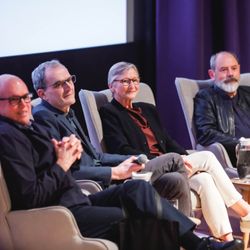
4. 2025 Murcutt Symposium - Healthy Buildings Breathe
59:50||Season 2, Ep. 4The inaugural Murcutt Symposium was held in Sydney, with house tours, talks and social events spanning three days 11-13 September. A highly interactive afternoon session led by 2010 Gold Medal winning architects Lindsay and Kerry Clare, Ché Wall and former Environment Commissioner, Rod Simpson, questioned whether our current planning and building regulatory settings are really achieving gains in the race to decarbonise our buildings. Limits to natural ventilation and drive towards airtightness can lead to buildings that overheat in Australian conditions unless reliant on mechanical ventilation to avoid the unintended consequences like poorer indoor air quality and mould.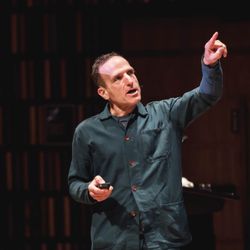
3. 2025 Murcutt Symposium - Dr Piers Taylor
57:54||Season 2, Ep. 3The inaugural Murcutt Symposium was held in Sydney, with house tours, talks and social events spanning three days 11-13 September. On Saturday 13 September we experienced the irrepressible energy of Dr Piers Taylor - founder of the UK's Invisible Studio and alumni of the 2001 Murcutt Masterclass. Piers opened his keynote address by announcing "I am hardly an architect...I have never had a roadmap and I haven't really had a career"! In a talk titled 'Muddling On', Piers' work shares the focus on learning through making and an intense study of local conditions as the driver for design decisions. Throughout Piers' work in teaching and practice is a endless curiosity that generates an architecture of invention and testing; aiming to reduce waste in the fabrication phase so that form is often a result of this search, and not wilful shape-making.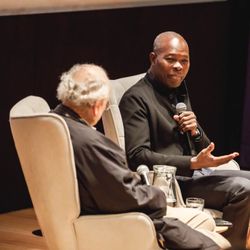
2. 2025 Murcutt Symposium - Glenn Murcutt and Francis Kere in conversation
56:34||Season 2, Ep. 2The inaugural Murcutt Symposium was held in Sydney, with house tours, talks and social events spanning three days 11-13 September. On Saturday 13 September, Francis Kéré and Glenn Murcutt spoke with long term scholar of Murcutt’s work, Catherine Lassen of the University of Sydney. Covering many shared themes, a focus was on the need for design and construction to be understood as a single pursuit and not separately as is often taught, and on showing caution to the speedy decisions that are able to be made using computing power. Good decisions sometimes require 'hesitation' that only a human can discern.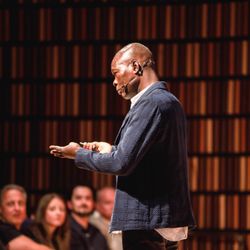
1. 2025 Murcutt Symposium - Murcutt Oration
01:01:45||Season 2, Ep. 1The inaugural Murcutt Symposium was held in Sydney, with house tours, talks and social events spanning three days 11-13 September 2025. On Friday 12 September, a packed auditorium witnessed a moving ceremony as Glenn Murcutt AO awarded the Murcutt Pin to Francis Kéré; paying tribute to the sustained commitment shown by Kéré to work for, and with, his community in Gando, Burkina Faso, to build schools and other infrastructure using a combination of traditional materials and methods, augmented with contemporary approaches that are handled simply.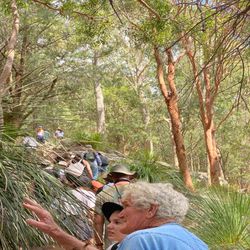
8. Passing it on
12:55||Season 1, Ep. 8For more than 20 years, the Murcutt Foundation has placed a real focus on teaching and learning in the landscape - running both a summer school for students of architecture about to launch in to the academic year, and in the Glenn Murcutt Masterclass aimed at architects who are looking to recharge after years of practice. So what’s different about this way of teaching and learning? How does it seek to complement what’s taught in schools of architecture? Come with us as we listen in to two of the masters, Rick Leplastrier and Peter Stutchbury - both recipients of the Australian Institute of Architects Gold Medal for architecture - and from students who were part of the summer school held in 2024....